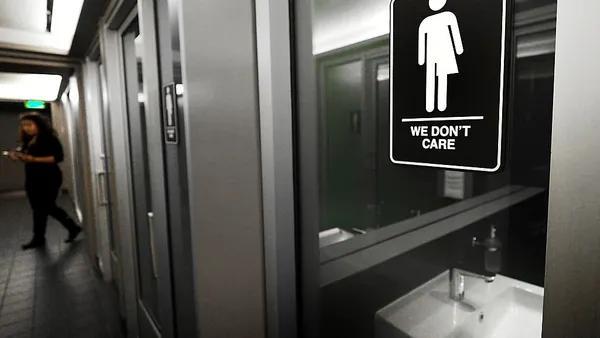Dive Brief:
- A supervisor at Cooper University Hospital in New Jersey unlawfully asked a Muslim medical assistant to get a note from the Quran when she asked that she be allowed to wear coverings in accord with her religious beliefs, the worker has alleged in a lawsuit filed in a New Jersey district court (Boyd v. Cooper University Hospital, No. 1:19-cv-15452 (D. N.J. July 17, 2019)).
- Bianca Boyd said she was told that the face covering she wore during Ramadan violated hospital policy and that she would not be permitted an accommodation unless she brought in a note from the Quran. In addition, Boyd says she was discriminated against because of her disability (or the perception that she was disabled) after she lost consciousness at work for almost an hour and then spent time in the hospital. She also alleged she was told she was being terminated for faxing documents to HR when she sought leave as an accommodation because sending faxes during working hours was not allowed.
- Boyd claimed violations of the Americans with Disabilities Act (ADA), Title VII of the Civil Rights Act of 1964, the Family and Medical Leave Act (FMLA), and New Jersey law.
Dive Insight:
Title VII prohibits discrimination on the basis of religion and requires employers to accommodate a job applicant’s or employee’s sincerely held religious beliefs, unless doing so presents an undue hardship, the EEOC says.
Most of the time, federal law requires employers to make exceptions to their usual rules or preferences to permit applicants and employees to observe religious dress practices, the federal agency says in Religious Garb and Grooming in the Workplace: Rights and Responsibilities. Examples of religious dress include a Muslim hijab (headscarf), a Sikh turban, a Christian cross, and observing religious prohibitions against wearing certain garments — such as Muslim, Pentecostal Christian or Orthodox Jewish women’s practice of not wearing pants or short skirts. However, the EEOC notes, if a way of dressing is simply a personal preference, it is not protected by Title VII.
In general, the EEOC says, an accommodation may cause undue hardship if it is “costly, compromises workplace safety, decreases workplace efficiency, infringes on the rights of other employees, or requires other employees to do more than their share of potentially hazardous or burdensome work.”
Managers and supervisors should be trained to know that an exception to a uniform or grooming policy can be a religious accommodation. Employers should review their policies and practices to ensure that federal and state mandates regarding workplace accommodations for religious beliefs and practices are followed. Additionally, experts advise employers to foster a culture of respect and inclusion and be on the lookout for covert, unconscious biases in addition to overt prejudice.













